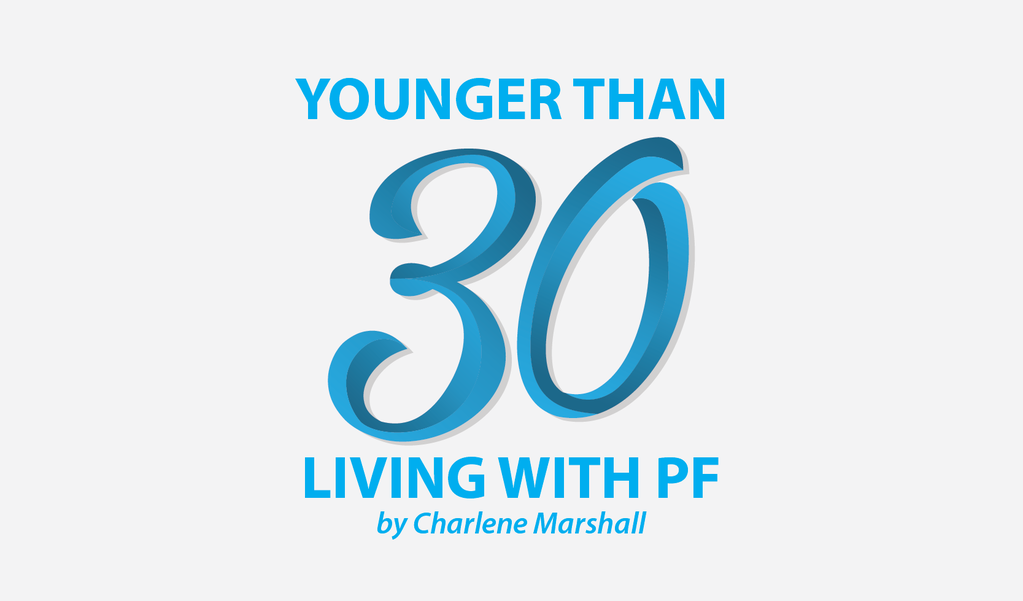The Freedom That Comes from Letting Go of What I Should Have
Written by |


Trust me when I say that this column does not come without a lot of behind–the–scenes work to try to change my thinking so I can offer a more positive message.
I still can’t say I practice what I preach. But I do want to share an inspirational story with you.
I recently rewatched a TED talk video that I related to after receiving my idiopathic pulmonary fibrosis diagnosis. The video conveys a message I try to remember when I am having a good day, and forgive myself for not remembering when I am having a bad one.
The video comes from a former Olympic-class cross-country skier from Australia. Her name is Janine Shepherd, and her life changed forever when a truck hit her as she was training on a bike, putting her in a wheelchair. Her TED talk is called “A Broken Body Is Not a Broken Person.”
Many of us with IPF struggle with the loss of our physical abilities after our diagnosis. If you do, I encourage you to watch the video to soak up Janine’s inspiring message.
Since I was diagnosed with IPF, I’ve had a rapid decline in lung function, significantly impacting my ability to do anything. As a result, I often focus on what I am no longer able to do.
The physical activities I grieve most about are playing underwater hockey and running. I miss many other facets of my old life as well. Some are as simple as going from floor to floor in my house without feeling short of breath or moving about without becoming tangled in oxygen tubing.
Janine explains in the video that she once defined herself by her body. Being physically active and competing was all she ever knew.
On some level, I think we all feel this way. That’s because our physical abilities are usually what enable us to do what we enjoy. On the flip side, there is so much more to us than the physical. This is the message Janine conveys that I want to focus more on in my day–to–day living.
She also discusses hitting rock bottom: coming home from the hospital confined to a wheelchair, wondering if she would ever have a good life again. In retrospect, it was the perfect time to start something new, she contends.
Letting go of her life as an athlete actually gave her a sense of freedom, she says. It offered her a chance to explore the infinite possibilities outside world-class sport.
I have yet to find her strength and perspective because I keep thinking about all I have lost physically. But I see the value and truth in her message. Although my physical losses cannot compare with Janine’s, anyone with IPF can relate to the idea of a new path — one much different from the one we should have been on.
I may never be able to run again. But maybe I can be an advocate for pulmonary fibrosis organ donation, inspiring others through public speaking. Or, instead of playing underwater hockey, maybe I can help establish support groups for young adults with lung diseases. After all, I have training that would enable me to do this. The bottom line is that I want to use my experience to make someone else’s life easier.
Although on some days it doesn’t feel like it, there are endless ways to make a contribution when we think positively and creatively. Janine discusses creativity in her video. She says the biggest creative challenge she has ever faced was rebuilding a life that would be drastically different from the one she had.
Although I don’t need to rebuild my life as a result of IPF, I do need to adjust it. And when I’m doing that, I need to remember that I can do an awful lot beyond the physical.
In a few days, when I am having a bad stretch, it may be hard to take Janine’s message to heart, as I’m doing now. That’s why I wrote it down in this column. Let me leave you with this thought of hers: “Although our bodies may be limited, it is our spirits that are unstoppable.”
***
Note: Pulmonary Fibrosis News is strictly a news and information website about the disease. It does not provide medical advice, diagnosis, or treatment. This content is not intended to be a substitute for professional medical advice, diagnosis, or treatment. Always seek the advice of your physician or other qualified health provider with any questions you may have regarding a medical condition. Never disregard professional medical advice or delay in seeking it because of something you have read on this website. The opinions expressed in this column are not those of Pulmonary Fibrosis News or its parent company, Bionews Services, and are intended to spark discussion about issues pertaining to pulmonary fibrosis.






Rhoda Engelbrecht
Strange was out to dinner with my son. He asked what does it feel like to know you're going to die? Answered him, "so often feel so badly, would be a blessing to just let go". Had my diagnosis five years ago, also COPD, AFIB, PAD, heart failure, Venous insufficiency, the list goes on and on. Another factor of age, 82 and living my whole life with AFIB, before it could be diagnosed. Accordingly keep noticing of prognosis of three to five years. Enough tenacity to prove them wrong! I'll keep on going, although slowly. Perhaps there is a plan? Who knows. Have seen so many much younger than I with these diseases, just not fair. When you know there's no hope, the end isn't that bad, a body get extremely tired, especially being as tired when you retire, as when you arise in the morning. The fact is, I'm arising, and that's a good thing! Yes the next minute I may be, laughing, crying, and of course coughing, that comes with it all, plus that 50 foot cord touching my neuropathic legs!
Katherine Broach
A perfect description of the fatigue factor w/IPF: feeling as tired on rising as on retiring at night. I am 79, in my 4th year after diagnosis, and still on the well spectrum. Yet the fatigue is relentless. At 79 and retired, I have the luxury of giving in to it, of being slower, of being 79. After all, I've run my races. My heart goes out to the young IPF sufferers. The transplants are for them! We all want a gentle death, but NO ONE GETS OUT ALIVE.